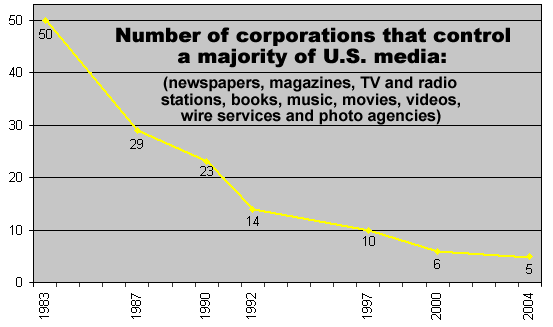OpEdNews � Fascism Coming to a Court Near You; Corporate Personhood and the Roberts' Courtby Thom Hartmann Page 1 of 3 page(s) www.opednews.com
As the 1983 American Heritage Dictionary noted, fascism is: "A system of government that exercises a dictatorship of the extreme right, typically through the merging of state and business leadership, together with belligerent nationalism."
Get ready.
...
This new case, Citizens United v. Federal Election Commission, presents the best opportunity for the Roberts Court to use its five vote majority to totally re-write the face of politics in America, rolling us back to the pre-1907 era of the Robber Barons.
As Jeffrey Toobin wrote in The New Yorker ("No More Mr. Nice Guy"): "In every major case since he became the nation's seventeenth Chief Justice, Roberts has sided with the prosecution over the defendant, the state over the condemned, the executive branch over the legislative, and the corporate defendant over the individual plaintiff. Even more than Scalia, who has embodied judicial conservatism during a generation of service on the Supreme Court, Roberts has served the interests, and reflected the values, of the contemporary Republican Party."
...
Chief Justice Roberts weighed in, too, in the main decision. It's a fascinating decision to read - and search for occurrences of the word "corporation" - and here's one of Roberts' more convoluted observations in defense of corporate free speech rights:
Accepting the notion that a ban on campaign speech could also embrace issue advocacy would call into question our holding in Bellotti that the corporate identity of a speaker does not strip corporations of all free speech rights. It would be a constitutional 'bait and switch' to conclude that corporate campaign speech may be banned in part because corporate issue advocacy is not, and then assert that corporate issue advocacy may be banned as well, pursuant to the same asserted compelling interest, through a broad conception of what constitutes the functional equivalent of campaign speech, or by relying on the inability to distinguish campaign speech from issue advocacy.
Bottom line - corporate free speech rights are Real Rights that Must Be Respected.
Justice Souter wrote a rather frightening dissent (this was a 5-4 decision, with the usual right-wing suspects on the "5" side): "Finally, it goes without saying that nothing has changed about the facts. In Justice Frankfurter's words, they demonstrate a threat to 'the integrity of our electoral process, which for a century now Congress has repeatedly found to be imperiled by corporate, and later union, money: witness the Tillman Act, Taft-Hartley, FECA, and BCRA.
"McConnell was our latest decision vindicating clear and reasonable boundaries that Congress has drawn to limit 'the corrosive and distorting effects of immense aggregations of wealth,' and the decision could claim the justification of ongoing fact as well as decisional history in recognizing Congress's authority to protect the integrity of elections from the distortion of corporate and union funds.
"After today, the ban on contributions by corporations and unions and the limitation on their corrosive spending when they enter the political arena are open to easy circumvention, and the possibilities for regulating corporate and union campaign money are unclear.
"The ban on contributions will mean nothing much, now that companies and unions can save candidates the expense of advertising directly, simply by running 'issue ads' without express advocacy, or by funneling the money through an independent corporation like Wisconsin Right To Life."
Sounding almost depressed, Souter closed his dissent with these words: "I cannot tell what the future will force upon us, but I respectfully dissent from this judgment today." ...
